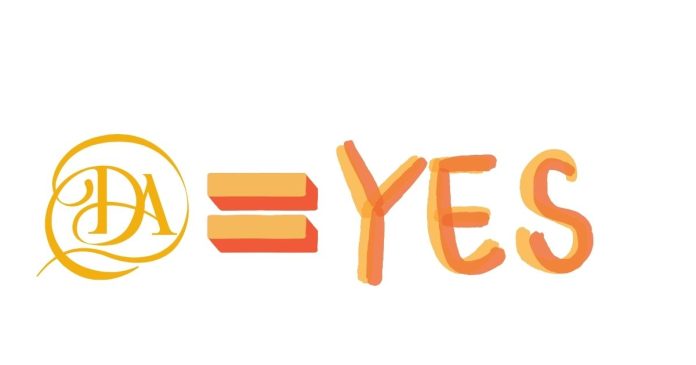The word “da” (да) is one of the most commonly used words in the Russian language. Simple yet versatile, “da” plays an essential role in everyday communication. Here’s a closer look at its meanings and uses:
1. Primary Meaning: Yes
The most straightforward and frequent use of “da” is to express affirmation. It translates to “yes” in English and is used in a variety of contexts:
- As an answer to a question:
- Question: Ты пойдёшь в кино? (Are you going to the cinema?)
- Answer: Да. (Yes.)
- To confirm or agree:
- Statement: Сегодня хорошая погода. (The weather is nice today.)
- Response: Да, очень. (Yes, very.)
2. Expression of Surprise or Emphasis
“Da” can also be used to express surprise, disbelief, or emphasize a statement. In these cases, the tone of voice often conveys the intended meaning:
- Surprise:
- Да?! Ты серьёзно? (Really?! Are you serious?)
- Emphasis:
- Да, я точно знаю! (Yes, I’m absolutely sure!)
3. Part of Compound Phrases
“Da” frequently appears in idiomatic expressions and compound phrases, where it takes on nuanced meanings:
- Да ладно (Da ladno):
- Meaning: “Come on,” “No way,” or “You’re kidding.”
- Example: Да ладно, это правда? (Come on, is that true?)
- Да ну (Da nu):
- Meaning: Expressing disbelief, often as “No way” or “You’re joking.”
- Example: Да ну, не может быть! (No way, it can’t be!)
- Давай (Davai):
- Meaning: “Let’s” or “Go ahead.”
- Example: Давай пойдём! (Let’s go!)
4. Historical and Cultural Significance
The simplicity of “da” belies its importance in Russian communication. As a foundational word, it reflects the straightforward and direct nature of the language. Beyond its linguistic role, it often appears in cultural contexts, including literature, music, and cinema, embodying the essence of affirmation and agreement.
5. Comparison with Similar Words
While “da” is a positive response, it’s helpful to understand its alternatives and opposites in Russian:
- Нет (Net): The direct opposite of “da,” meaning “no.”
- Ага (Aga): A casual or colloquial way to say “yes,” similar to “yeah” in English.
The word “da” may seem simple at first glance, but its versatility and frequent usage make it indispensable in the Russian language. Whether affirming, expressing surprise, or forming part of an idiomatic phrase, “da” is a word every Russian learner needs to know. Mastering its use is a step toward fluency and understanding the nuances of Russian communication.



